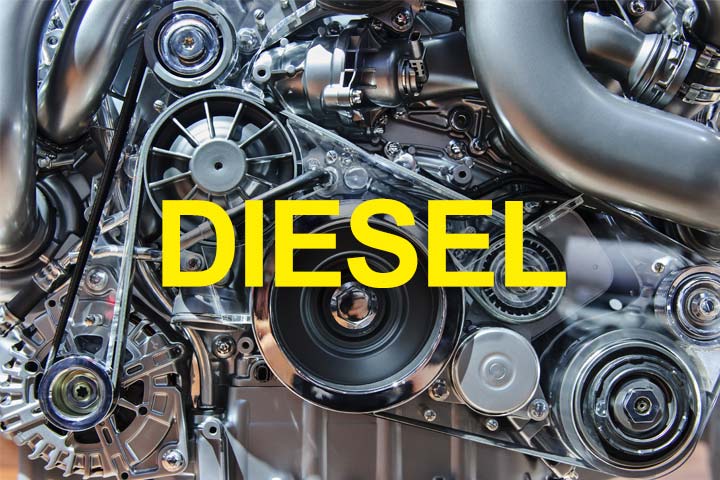
However, that doesn’t mean they don’t need regular maintenance. Failing to take care of any engine can kill it, adding up to costly repair bills if you’re not careful. The time and investment you make in caring for your vehicle are well worth it.
Here are some tips to keep your diesel engine running in tip-top shape:
Get your oil changed regularly.
Checking your vehicle’s manual for how frequently to change your oil is important and can be adjusted, depending on how you use your vehicle. Think of your engine’s oil like a new pair of sneakers. When you wear new sneakers, the cushioned insoles feel great on the bottom of your feet and help support your legs as you move. But the longer you wear those sneakers, the less spring you feel, and eventually they become uncomfortable. Old, dirty oil will eventually shear, meaning it breaks apart at a molecular level. When motor oil shears, it loses viscosity and leads to increasing wear, oil consumption and ultimately engine damage. All of this is damaging to your engine, like an old pair of sneakers on your feet can lead to injured legs.
Use the right oil filters.
Make sure the oil filters you use meet or exceed recommendations by the vehicle’s manufacturer. Oil filters clean the oil and prevent abrasive contaminants from damaging parts of the engine. Choosing a high quality oil filter is imperative because the internal construction of the filter can make or break your car’s engine.
Add a bottle of diesel treatment when you fill up.
Diesel treatment helps keep impurities in the fuel from reaching your diesel engine. Some of these products also provide your vehicle with a much-needed power boost. Who wouldn’t love to see their vehicle move down the road with more efficiency? The right additive ensures that your diesel engine is burning fuel in the most efficient manner possible. This provides each piston stroke with more power. When an additive takes effect, your engine will perform as it did when it was new, and a noticeable difference can be felt when you ask your engine to give it all it’s got.
Avoid idling for long periods of time.
Excessive idling is terrible for diesel engines. Idling doesn’t keep combustion temperatures high enough to burn fuel effectively, which sometimes allows fuel to get past the rings and into the crankcase oil, as well as build up on injector tips. For this reason, idling beyond fifteen minutes should be avoided. It’s something harder to sidestep during extreme weather months but can add years to the life of your Ford diesel engine.
Check the air filter.
Since diesel engines use a lot of air, greater attention should be paid to the air filters. Installing an air filter restriction gauge on the side of the air filter housing can help you see when to change your filter appropriately. The indicator changes as soon as the engine filter element becomes dirty.
Drain the water separator.
Having the engine’s water separator properly drained on schedule can add to the longevity of your diesel engine. A modified pump and filtration system specifically for Ford diesel engines collects water from the fuel and is usually located near the fuel filter. If your diesel vehicle doesn’t have one, you can install one and save yourself future repair costs by keeping excess water out of your fuel.
Routinely check the gaskets.
Gaskets on diesel engines should be watched closely since they are exposed to extreme operating conditions. Never replace just one leaky gasket. Always replace them as a set. If one starts to leak, the others are not that far behind. Re-torque your engine’s mounting bolts on a regular basis to prevent leaks, especially in the combustion mounting areas. Also check coolant hoses, which can deteriorate quickly if they become loose. These issues are often caused by engine vibrations, which are common among diesel engines.
Your Ford engine vehicle is important to you.
Following the above tips will improve your Ford engine’s longevity. Don’t forget, RC Auto Specialists can help. Schedule an appointment right away or stop by today.
